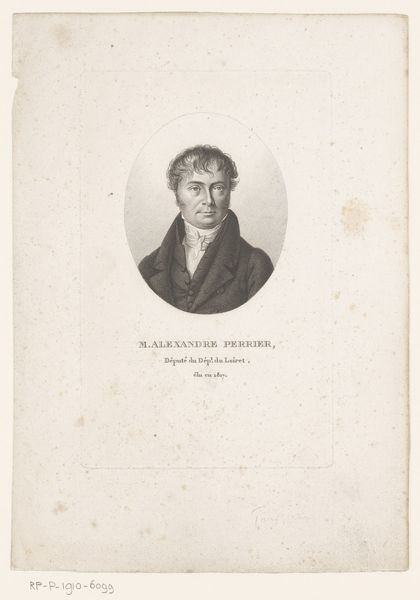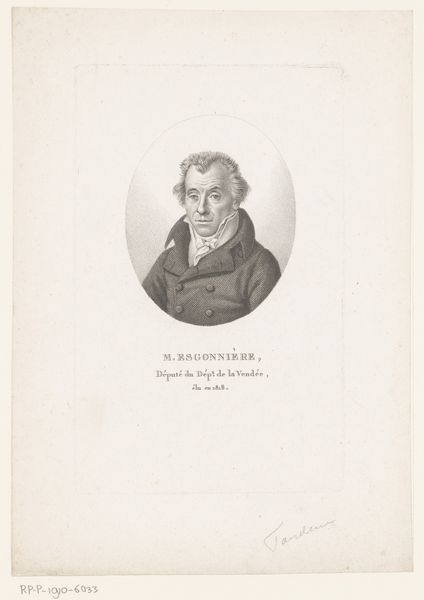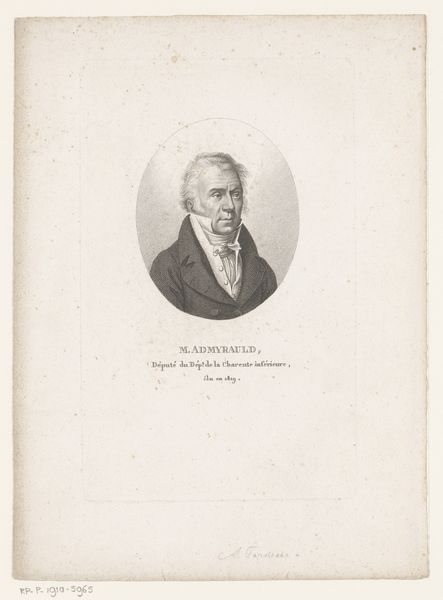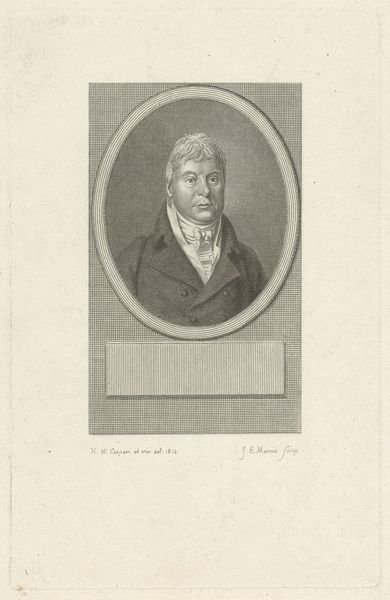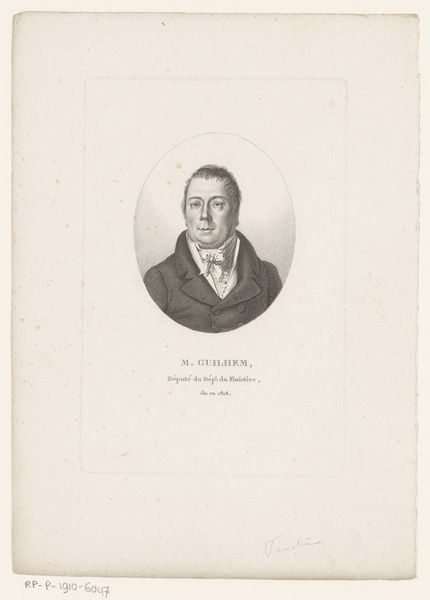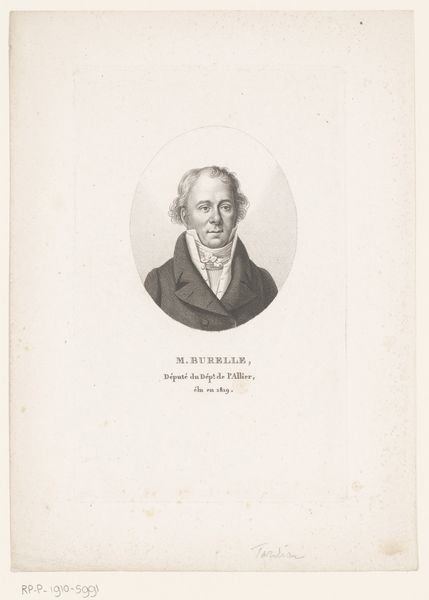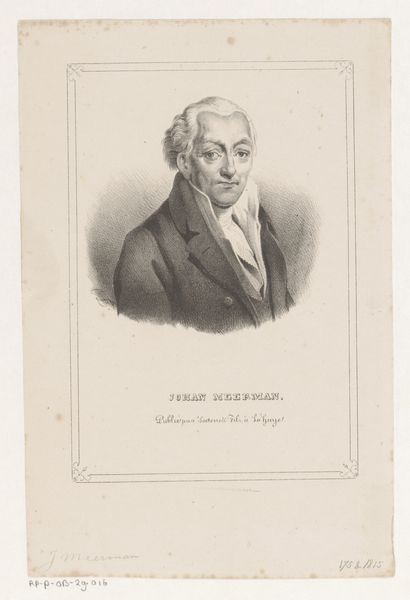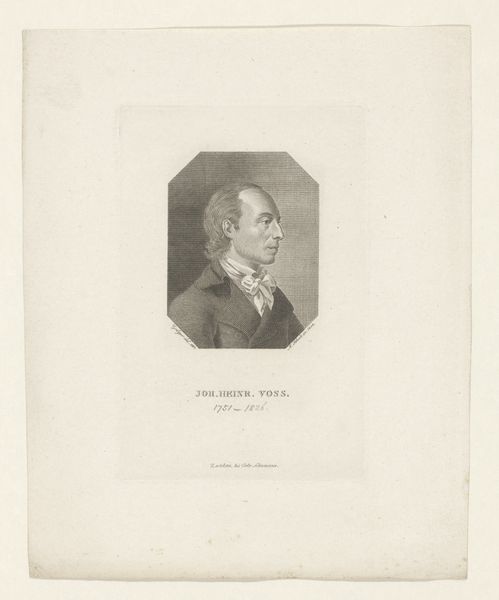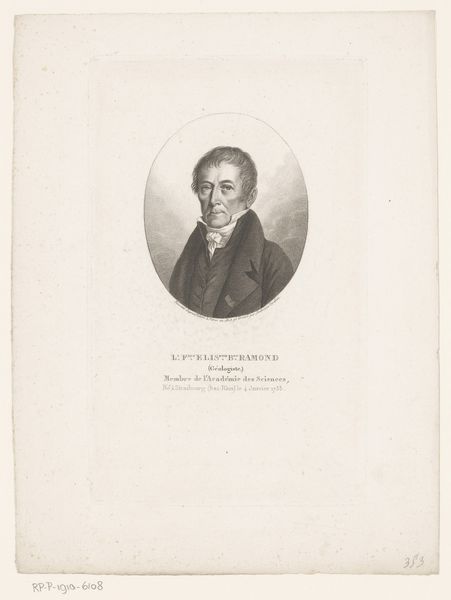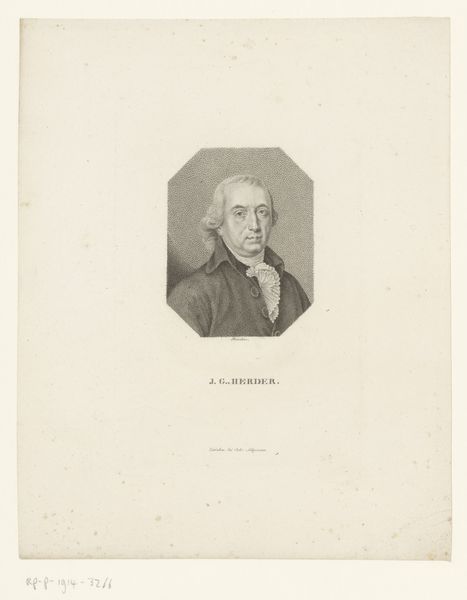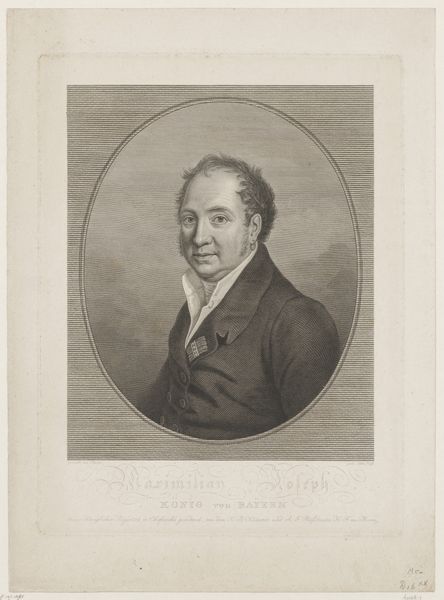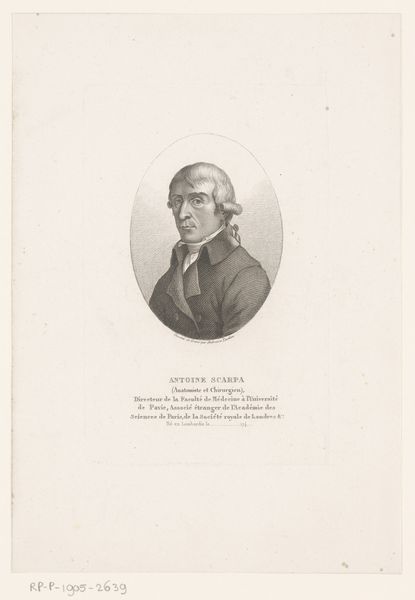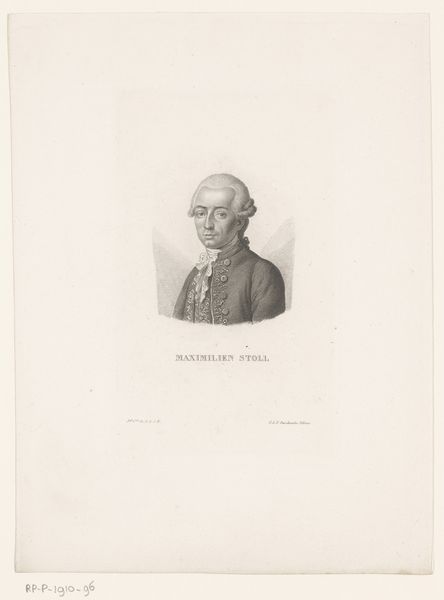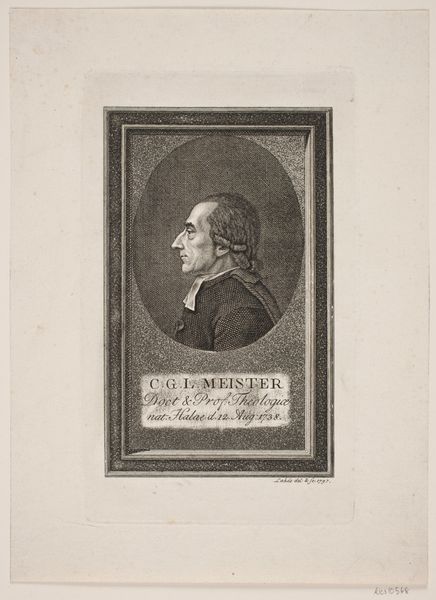
print, engraving
#
portrait
#
neoclacissism
# print
#
old engraving style
#
history-painting
#
engraving
#
realism
Dimensions: height 220 mm, width 136 mm
Copyright: Rijks Museum: Open Domain
This is Ambroise Tardieu’s "Portrait of Abraham Leseigneur," a delicate engraving on paper. The medium isn't paint or clay, but rather precisely incised lines, using tools and techniques handed down through generations of printmakers. Engraving begins with a polished metal plate. The artist uses a burin to cut lines into the surface, the depth and density of these lines dictating how much ink the plate will hold. This portrait’s tonality results from countless tiny strokes, creating areas of light and shadow that define Leseigneur’s features and clothing. Consider the labor involved: the skilled hand required to control the burin, the time spent meticulously rendering detail. Printmaking like this was a commercial enterprise, meeting the rising demand for accessible imagery in 19th-century France. It reflects the increasing industrialization of art, where skilled artisans translated images into multiples, expanding their reach and influence. This engraving isn't just a portrait, it's a testament to craft, labor, and the changing landscape of art production.
Comments
No comments
Be the first to comment and join the conversation on the ultimate creative platform.
